
We kindly inform you that, as long as the subject affiliation of our 300.000+ articles is in progress, you might get unsufficient or no results on your third level or second level search. In this case, please broaden your search criteria.


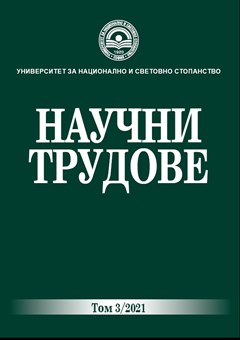
In the past years the labor relations have faced a number of economic, political, and now – the so far unknown “epidemical” crises. To overcome their negative consequences, various legal mechanisms have been sought, which should have given some experience to the legislator to respond in a crisis situation. It is therefore least disturbing that the wrong legislative concept (or rather lack thereof) has led to a number of changes in our labor law since the state of emergency was declared on 13 March 2020. The study aims to outline at least some of the problems of this legal uncertainty, in the hope of preventing the recurrence of such mistakes in the future.
More...
The present study analyzes the changes in labor legislation made in order to reduce the negative effects of the crisis caused by SCovid-19 on employment. They extend the powers of employers to change certain elements of the content of employment relationships unilaterally that affect the rights of employees substantially. Adopted suddenly and under the pressure of events, the new regulation needs to be refined to meet correspond the function of labor law to protect employees. The main purpose of the article is based on the normative, formal-logical and deductive method to analyze the legal norms establishing the possibilities for reaction of the employer and to derive the guidelines for increasing the protection of labor in cases of state of emergency or emergency epidemic situation.
More...
In this article the author examines the protection of minor labour in Bulgarian legislation, distinguishes between the concepts of “child labor” and “minor labour”, outlines theoretically the conditions under which the minor labour is socially acceptable and analyzes the extent to which these conditions are observed in the Bulgarian legislation. As a result, it is concluded that the Bulgarian legislation meets international standards, providing a high level of protection of minor labour. However, the author makes some proposals de lege ferenda for additional measures which may contribute to an even higher level of this protection.
More...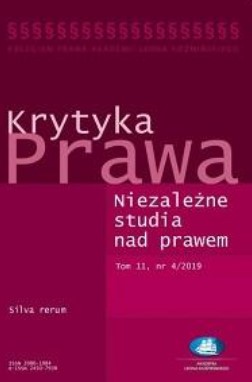
The object of the study the findings of which are presented in this article is the written statements of reasons of selected resolutions issued by the Polish Supreme Court and the dissenting opinions submitted in opposition to them. The situation of this type constitutes a relationship of two or more standpoints regarding a problem presented to a bench, referred to in the text as an opposition. The aim of the article is to offer a typology of opposition that can be reconstructed as a result of a dissenting opinion being submitted. It encompasses axiological oppositions in the strong sense and interpretation oppositions (axiological in the weak sense). Axiological oppositions in the strong sense take the form of unipolar or bipolar opposites. The examined group of resolutions has given grounds to also isolate doctrinal disputes as well as disputes over the legal nature of a given institution. The article, however, focuses only on axiological opposites. The cognitive value of the conducted analyses lies: (1) in the identification of the limited role of interpretation guidelines on the level of written statements of reasons, and (2) in the identification of the dissimilarity of situations where a votum separatum becomes an expression of an equal standpoint on the grounds of ius interpretandi considered in broad terms and situations where a votum separatum is a dissenting opinion not so much against a decision that has been made but against the legal regulation that has required this decision to be as it is.
More...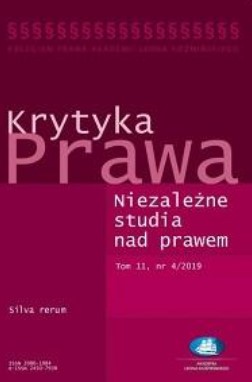
Social labour inspectorate, as a special form of unionised representation of employees’ interests, has the right to control employers in the field of their compliance with the provisions of the labour law in place. Exercising this controlling function involves the need for a social labour inspector to access the information and documents that may contain personal data of employees. The study advances a thesis that a social labour inspector is an entity processing personal data of employees on behalf of a company trade union organisation – who is the controller of these data, and the grounds for the processing of personal data of employees are the relevant provisions of the GDPR. The theses proposed in the study aim to challenge the Constitutional Tribunal’s standpoint regarding a social labour inspector’s right to obtain personal data. The problems addressed in the study have not been a subject of the existing views of legal academics and commentators, nor have they been covered in the established line of judicial decisions yet.
More...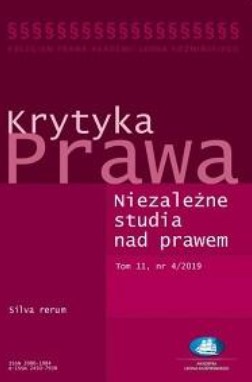
The purpose of the paper is to analyse issues related to personal data processing within the framework of co-operation between the employer and trade unions in individual employment matters. The issues of personal data processing in collective relations are becoming more important especially due to lack of detailed legislative solutions, which results in the necessity to apply the general provisions of the GDPR as well as the latest changes to the Trade Unions Act. Pursuant to these changes, not only employees, but also persons performing gainful employment who are not employees can create and join trade unions as well as can be defended by the trade unions. The legislator frequently finds it difficult to adjust the protection of personal data to the specificity of collective relations, and the way in which the relationship between employers and trade unions is shaped in individual employment matters raises many questions in the context of personal data protection. The issue in question has not been explored in depth in the professional labour law literature. Thus, research on this subject is novel and justified from both the theoretical and the practical perspective. In the article, the formal-dogmatic method of research was used.
More...
Although the increased performance in digital platform work has been recorded only recently, the numerous problems related to employment law and social welfare protection of crowdworkers are not new. Due to diverse issues in classifying specific individuals as employees, “atypical” workers and crowdworkers have encountered many problems while attempting to obtain employment law and social welfare protection. Despite numerous differences, majority of countries have made employment law protection available to those digital platform workers who meet the requirements of the legal definition of “an employee” (or “a worker”, as explicitly designated in specific legislations). In other words, the legal definition of an employee or a dependent contractor provides entrance into the area of employment law protection. However, both national and international legislators have demonstrated a certain degree of inertness in terms of avoiding to adjust the legal concept of “an employee” (or a subordinate, as defined in some legislations) to new social and economic circumstances. Considering the traditional concept of “employee”, a crowdworker cannot be designated as a subordinate; consequently, digital platform workers do not fall under the scope of relevant provisions of labor, social care and tax law. On the other hand, when it comes to traditional legal categories, classifying crowdworkers as independent contractors does not diminish their need for adequate protection, primarily in terms of fair financial compensation for work, clearly limited working hours, health care and safety at work, protection in case of illness, injury at work, maternity leave or freedom of association. Therefore, national legislators should revise the justifiability and proportionality of legislation applied to economic cooperation, and consider the specificities of economic cooperation business models and tools that can be used for resolving ample issues in defining employment law protection of crowdworkers and identifying entities that may have the legal status of the employer.
More...
This article shall provide an analysis of the detainees’ employment, as an indicator oftheir ability to reintegrate into society after release. One of the most acute problems of society isthe recidivism, its control and solutions to reduce the crime rate. Over time, work has beenconsidered one of the most concrete methods of re-education, both in prison and after release. Intoday’s society, work is recognized as human, social, psychological and economic value, beingestablished as a human right along with other fundamental rights. Thus, the purpose of executionof sentences with deprivation of liberty is to prevent the commission of new crimes and forminga correct attitude towards the rule of law, towards the rules of social coexistence and towardswork, in order to reintegrate detainees into society.Social policies, programs and projects have been developed in this area, but not beingintegrated, their effects were not visible or quantified. To this situation is added the pandemiccaused by SARS-CoV-2 virus, which places in the background the concern for the category ofdetainees who have been released and the risk of recidivism that it presents. In this context,against the background of lack of training and qualification, increasing poverty, decreasing thesupply of jobs, limiting movement and labor migration in developed areas, an increase in crimeand recidivism in the coming years is expected. At present, the educational and therapeuticprograms carried out in penitentiaries is no longer in line with social reality, so that criminalstrategies and legislation need to be redesigned and viable solutions found for socialreintegration of detainees and for preventing the risk of recidivism.
More...
The increase in consumer demand for meat in Europe has led to the development of many new slaughterhouses and meat product plants, and Poland remains the 7th largest exporter of meat in the world, with a share of 4.3%. Unfortunately, industrial animal farming and meat production involves the risk of exposing workers to many a harmful bacteria, fungi, viruses and parasites of animal origin. This paper presents the most important zoonotic factors and the routes of their spread in slaughterhouses, meat cutting and meat processing plants, and discusses basic preventive measures.
More...
The concept of innovation means, according to OECD definition, implementation of a new or significantly improved product, service or method, e.g. of management. The article presents the level of implementation of organisational innovations in Poland in comparison to other countries. In the light of these statistics Poland takes one of the worst places in terms of innovativeness. Meanwhile, innovativeness may also be indicated by the ability to react quickly to changes in the company’s closer and further environment and to quickly implement previously unused methods and work organisation in order to ensure continuity of operations. Such skills were demonstrated by Polish enterprises in the face of the COVID-19 outbreak.
More...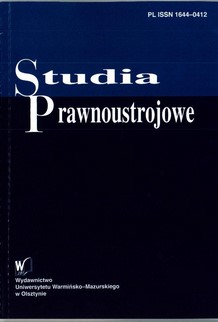
The purpose of the investigations described in this study was the analysis of the exemptions granted to the Social Insurance Institution concerning the payment of enforcement fees resulting from the conduct of civil enforcement proceedings concluded with discontinuance. The scope of the study has been limited to situations in which, at the request of the Social Insurance Institution, enforcement proceedings are conducted in respect of their operation specified in the act and conducted by this entity, and only to situations where the proceedings are discontinued due to the lack of the activity needed to continue the proceedings or failure to demand the suspension of proceedings within six months. The purpose of the research is to answer the question whether the judicial officer can effectively charge the Social Insurance Institution with an enforcement fee in connection with the discontinuance of enforcement proceedings under Article 824 paragraph 1 point 4 of the Code of Civil Proceedings. The conducted research leads to the conclusion that de lege lata neither Article 114 paragraph 4 of the Act on the social insurance system in connection with Article 45 paragraph 1 of the Act on enforcement fees nor any other provision introduces a sufficient legal basis for exempting the Social Insurance Institution from the enforcement fee when the enforcement proceedings are discontinued as in the described situation.
More...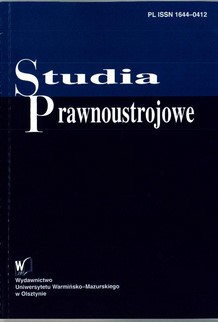
The paper discusses the employer’s right to suspend the pursuit of their economic activity by taking into account applicable provisions outlined in the Act of 6 March 2018: Business Entities Law. So far this issue has been closely analysed neither in labour law literature nor in economic law scholarly writings. For this reason, it seemed appropriate to attempt to establish to what extent mechanisms contained in the mentioned Act make possible a rational exercise of the right to suspend the pursuit of economic activity by an employer. The analysis has shown that Article 22 of the Business Entities Law does not have a quality of completeness. De lege lata it seems therefore reasonable to assume that to matters not covered by the provision in question rules of the Labour Code regulating leaves connected to parenthood should apply. In particular, these matters include issues related to rights and duties of an employee and an employer that come into play in the case where an employee finishes taking advantage of a leave related to parenthood or in the case where an employee applies to combine the parental leave or the leave for raising a child with carrying out a job for an employer who has granted such leave. A different interpretation of Article 22 of the Law of Business Entities would cause that due to its general character it could become a dysfunctional factor in applying the mechanism of suspension of economic activity in practice. In my opinion, a different interpretation would also result in the breach of the principle of equal treatment of employers.
More...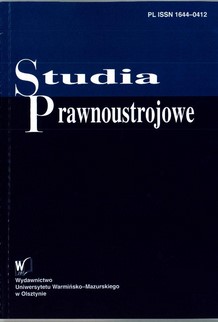
Paternity leave is a right of the employee-father who brings up the child. This right may not be transferred to any other person. The length of the leave is 2 weeks and is independent of such circumstances as: duration of the contract, type of the contract or the basis for establishing an employment relationship. The condition for its granting is the submission of a written application, no later than 7 days before starting the leave. The employer is obliged to accept the employee’s request. Paternity leave is granted until the child reaches 24 months of age or 24 months from the validation of the decision on the adoption of a child, but not longer than until the child reaches 7 years of age or 10 years in the case of postponement of compulsory education. During the paternity leave, the employee is entitled to a maternity allowance. During the paternity leave, the employee-father takes advantage of employee rights related to the special protection of the durability of the employment relationship.
More...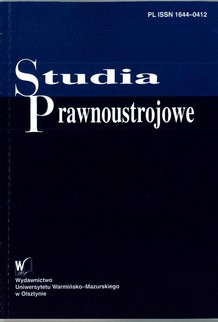
Review of: Aneta Giedrewicz-Niewińska - Krystyna Ziółkowska, Miejsce pracowniczego obowiązku dbałości o dobro zakładu pracy wśród podstawowych obowiązków pracowniczych, Wydawnictwo Uniwersytetu Warmińsko-Mazurskiego, Olsztyn 2021, ss. 267
More...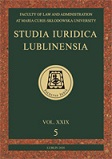
The right to strike action is one of the fundamental human rights and trade union freedoms. Strike, as a form of protest against broadly understood injustice is one of the most important measures of trade union protection of workers’ interests. However, the right to strike is not absolute and its legal use must often take into account the interests of the employer and third parties. The aim of the article is to assess – basing on a review of the literature and the case-law – the doctors’ right to strike from a legal, ethical and moral perspective. The issue of medical practitioners’ right to participate in a strike is ambiguous in view of the legislation currently in force, and two opposing positions have developed in the collective labour law literature. The problem of the legality of this form of protest of medical practitioners is nowadays left to the assessment of the parties to a collective bargaining dispute, carried out based on the general clause of a possible “threat to human life and health or national security”, with the lack of appropriate judicial review in this regard. It is, therefore, undoubtedly necessary for the legislature to take appropriate pro futuro legislative action.
More...
Mediation, as a way of resolving disputes, including collective disputes, is associated with relatively small regulatory interference by the legislator, which is reflected by one of its features, i.e. a lack of formal constraints. Therefore, the question arises about the mediator’s role in resolving collective disputes. Undoubtedly, they must guarantee to be impartial, however, it should be remembered that parties to a collective dispute are its hosts. Hence, it seems that the importance of an appropriate mediation technique cannot be overstated and it can be concluded that it will have a decisive impact on the successful completion of mediation. Therefore, the mediator’s role is primarily to help the parties communicate so that the conflict does not escalate during the mediation process.
More...
The study aims at tracing those legal con- sequences with regard to the employment or service relationship of a person under examination which ensue from suspension of the procedure of examining his/her reliability, and the refusal or revocation of his/her authorization for access to classified information. Consideration is also given to the restrictions on the access of the person under examination to the respective level of classified information as a temporary measure for avoiding the danger of unauthorized access to such informa- tion. The study also focuses on the applicability of the grounds of ‘objective impossibility to perform the employment contract’/‘objective impossibility for the civil servant to perform his/her service duties’ in those cases where the position requires access to classified information, however, the person occupying it cannot acquire such access.
More...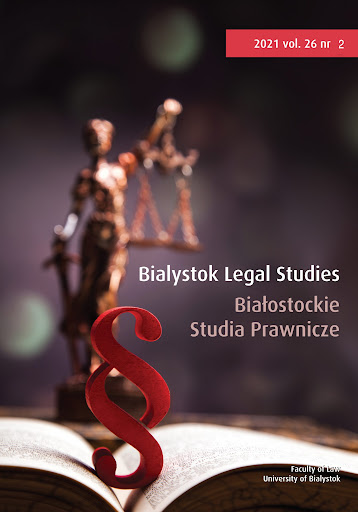
Among the prerequisites for optional dismissal from service, which are specified and do not leave the authorities any leeway in their assessment, a general reason, such as an important interest of the service, has been normalized. The concept of an “important interest of the service” is not defined, so this premise should be specified in each case by indicating both objective and subjective circumstances. The interest of the service is a set of values that the normal system should uphold when tasks in the field of safety and public order are carried out. One element of officer protection is the requirement to consult a company trade union organization before issuing a decision on dismissal from service due to an important interest of the service. Moreover, the decision to dismiss someone from the service may be issued only by the higher superior, who guarantees that the correct decision will be made and has greater competence in assesing the needs of the service and its interests.
More...